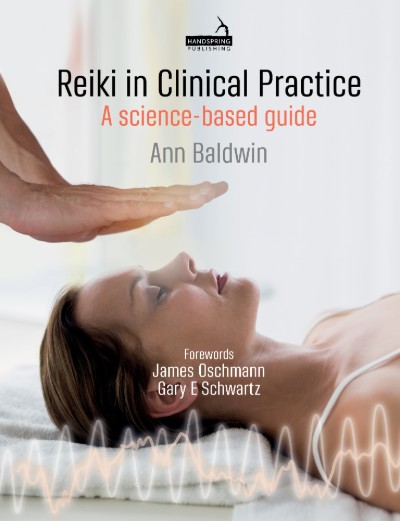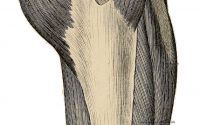Reiki in Hospitals – Patient Outcomes
According to an International Association of Reiki Professionals (IARP) study, 60% of “America’s Best Hospitals” (the top 25 ranked by US News and World Report in 2002) had Reiki programs in place. All hospitals using Reiki indicated that they thought Reiki was at least somewhat beneficial for patients, and 67% said they believed Reiki to be highly beneficial.
This article is an excerpt from Reiki in Clinical Practice by Amy Baldwin (copyright Handspring Publishing, 2020). Available at: https://terrarosa.com.au/product/books/energy-therapy-books/reiki-in-clinical-practice/
A Reiki program was introduced in 1997 at Portsmouth (New Hampshire) Regional Hospital by Patricia Alandydy, Reiki Master and operating room nurse manager, to address patient anxiety before surgery. This program is still in operation and Reiki volunteers cover the hospital seven days a week. If patients request Reiki, it is given the morning of surgery, and an additional 15-20-minute session is given prior to their transport to the operating room. Some patients have also received Reiki in the operating room at Portsmouth Regional Hospital. Since the start of the program, Reiki has gained wider acceptance and is not just limited to those patients who are undergoing surgery. Reiki is currently available in every department of the hospital to patients, their visitors and staff. According to Alandydy:
It has been an extremely rewarding experience to see Reiki embraced by such a diverse group of people and spread so far and wide by word of mouth, in a positive light. Patients many times request a Reiki [session] based on the positive experience of one of their friends . It has also been very revealing to see how open-minded the older patient population is to try Reiki. In the hospital setting, Reiki is presented as a technique which reduces stress and promotes relaxation, thereby enhancing the body’s natural ability to heal itself
Alandydy also offers a philosophical underpinning for establishing hospital-based Reiki programs:
The focus of offering Reiki in [our] hospital [is] to bring compassion and humanity back into the patient’s experience. Additionally, at a time when patients can feel passive in their care, Reiki offers a sense of empowerment. By choosing to receive Reiki, patients can actively participate in their healing process.
A voluntary survey is given to surgical patients who receive Reiki asking them to rate their anxiety on a 10-point scale before and after their procedure. In January to March 2003, the average stress score was 4.9 points lower after Reiki and the average pain score was 3.7 points lower. Twenty-three percent of patients receiving Reiki in January to March 2003 fell asleep during treatment. Ana Drexler RN, Director of lntegrative Services and Palliative Care, says that patients almost universally report a marked decrease in both stress and pain. However, Portsmouth Regional Hospital has not compared lengths of stay, pain medication use, or patient satisfaction among inpatients who have received Reiki therapy with those who have not. Nevertheless, patients who have become calmer and feel less pain are easier for the staff to care for, and likely to have a more positive hospital experience. They are also likely to have better medical outcomes.
The Reiki program at Brigham and Women’s Hospital is staffed by over 60 volunteer Reiki practitioners, as well as nurses and other staff members certified to perform Reiki. According to the article “BWH Volunteer Reiki Program” on their website www.brighamandwomens.org
Over the past eight years, our Reiki volunteers alone have provided over 40,000 Reiki sessions to patients, family members, and hospital staff[…] Our data, based on feedback from patients, family members, and staff members who receive Reiki sessions, as well as outside research, show that Reiki promotes relaxation, relieves stress and anxiety, reduces pain and fatigue, and improves overall quality of life.
The California Pacific Medical Center is one of the largest hospitals in northern California. Its Health and Healing Clinic provides care for both acute and chronic illness using a wide range of complementary care including Reiki. Dr. Mike Cantwell, a pediatrician specializing in infectious diseases, is also a Reiki Master. Dr. Cantwell provides 1-3-hour-long Reiki sessions, after which he assigns the patient to a Reiki II practitioner who continues with Reiki sessions outside the clinic. Patients who respond well to the Reiki treatments are referred for Reiki training so they can practice Reiki self treatments on a continuing basis. Dr. Cantwell states:
I have found Reiki to be useful in the treatment of acute illnesses such as musculoskeletal injury/pain, headache, acute infections, and asthma. Reiki is also useful for patients with chronic illnesses, especially those associated with chronic pain.
Reiki is an ongoing clinical program offered in cardiac units at Yale New Haven Hospital, Connecticut, USA. The Section of Cardiology, Department of Internal Medicine at Yale University conducted a study to determine whether Reiki would improve heart rate variability in patients recovering from acute coronary syndrome. Heart rate variability (HRV) indicates how well the heart adapts to the body’s needs. Acute coronary syndrome refers to a situation in which blood flow decreases in one or more coronary arteries death after acute coronary syndrome (Balenescu et al., 2004). These data support the idea that the patients who received Reiki were given an extra boost regarding their chances of full recovery.
In 1998, Hartford Hospital, Connecticut, USA approved the development of a Reiki volunteer pilot program in Women’s Health. Patients and staff reported statistically significant reductions in pain and anxiety, as well as improvement with sleep. As a result, the program became part of a formal Integrative Medicine Department in 1999. In 1998, 10 volunteers provided 523 Reiki sessions in 2012, approximately 40-50 volunteers provided 3,167 Reiki sessions. The total number of Reiki sessions provided over the 15 years is 58,214. Over 84% of patients say they would be more likely to choose Hartford Hospital for future admissions because of Reiki and other complementary and alternative therapies offered by Integrative Medicine .
Data obtained from patients who obtained Reiki during the initial pilot phase (December 1999-December 2000) demonstrates that 570 patients felt significantly less pain and were more relaxed after a Reiki session than before. A group of 44 employees felt significantly less pain, were more relaxed, and felt significantly less fatigue after their Reiki sessions than before. Data obtained from patients after the pilot study when the Reiki program had expanded (July-December 2004) showed that fter Reiki or massage, 97% of patients said that their sleep improved and 91% said that their nausea was reduced. Patients attending the Brownstone Ambulatory Clinic, Hartford Hospital, between August 2003 and December 2004 who received Reiki, massage or acupuncture once a week for six weeks showed significantly less anxiety and pain after their treatment. In 2008, Hartford Hospital Reiki Program was extended to the Cancer Center. Reiki is being used increasingly to comfort cancer patients and to and decrease their pain and anxiety
This article is an excerpt from Reiki in Clinical Practice by Amy Baldwin (copyright Handspring Publishing, 2020). Available at: https://terrarosa.com.au/product/books/energy-therapy-books/reiki-in-clinical-practice/

